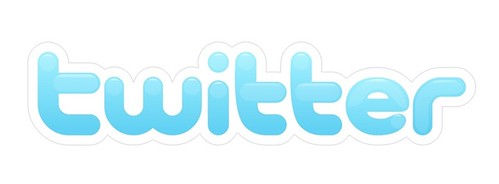Read Time:6 Minute, 4 Second
I’m going to begin by offering my opinion on the myth of Twitter’s inanity. You may well sit back and say “But Sam, I’ve seen Twitter, and I don’t care about what I’ve seen.” Fine, but that’s not the issue here. The issue is that it seems whenever old media brings up Twitter they have two options.
-
Call it inane and useless new media
-
Refer to the celebrities’ use of it, as if that is its only life-force.
What’s worse is that it is often referred to as inferior to Facebook, because of its supposed mundanity. If that is your line of argument, seriously consider re-reading your friend’s Facebook statuses. There is a reason you find them interesting, but I’ll get to that in a second. Objectively, however, they are just as banal as the worst exponent of Twitter. So, in response to David Dale at the Sydney Morning Herald, quoted below, I have a few thoughts and rhetorical questions for us to consider.
“It was the year when Twitter came and went – a fad formed in February and dropped in December, proof that this is the land of the short attention span… Telling the world everything you’re doing every minute is just not amusing any more. Rose has reached an epiphany: that when you have nothing interesting to say, there is no need to say anything. If Australia’s answer to Paris Hilton decides she couldn’t give a Twit, the rest of the partygoing community cannot be far behind… Rose delivered the death blow.” – Twittering is for boring old farts
Dale then goes on to compare Twitter to a scene from Back to the Future II, where feeds of information spew out from outlets all over the house. He seems to think this is laughable but honestly, in a society where I get my news from my TV, desktop computer, laptop and iPhone, is it really wise to ridicule that information might come from multiple sources?
I won’t even begin to get into the irony of the article itself. I read about it on Twitter, not in the paper. There’s some depth to that beyond the pretentious chuckle it may insight. The depth comes from the fact that if Twitter is this inane stream of pointless information, a trend which has lost its steam, then why is this news? It has been proven time and time again that people not on Twitter are either blindly critical of it, or not interested in the slightest. The piece itself can only exist as a puff piece, because those who care know it is false, and those who don’t care, what’s the point?
 For those who are not involved, the inputs to your twitter feed (or, in a friendlier way, people you choose to follow) are chosen by you. If you choose boring people who tweet nothing but breakfast, you will get nothing but breakfast. Criticism of this aspect is like turning on the cooking channel and complaining that no-one is covering the war in Iraq. The reasons someone is worth following on twitter come down to one basic fact: Do you care what they have to say? It is for this reason that I don’t follow Ruby Rose, nor care about whether she has left the site. To quote her departure as being a sign of the death of Twitter is like saying Morning Television is done with now that Bert Newton has retired. I love Bert, but are we really so naive to turn around and say that an entire form of communication is characterised by the involvement of its most famous players? If so, I fear for the Australian Chamber Orchestra’s mortality when they lose Richard Tognetti and who knows what’s going to happen when Bill Gates and Steve Jobs retire? I guess we’ll go back to pen and paper. To drive the point further home, when have you EVER opened a newspaper and found every article interesting to you on an individual level? What is it again about people in glass houses?
For those who are not involved, the inputs to your twitter feed (or, in a friendlier way, people you choose to follow) are chosen by you. If you choose boring people who tweet nothing but breakfast, you will get nothing but breakfast. Criticism of this aspect is like turning on the cooking channel and complaining that no-one is covering the war in Iraq. The reasons someone is worth following on twitter come down to one basic fact: Do you care what they have to say? It is for this reason that I don’t follow Ruby Rose, nor care about whether she has left the site. To quote her departure as being a sign of the death of Twitter is like saying Morning Television is done with now that Bert Newton has retired. I love Bert, but are we really so naive to turn around and say that an entire form of communication is characterised by the involvement of its most famous players? If so, I fear for the Australian Chamber Orchestra’s mortality when they lose Richard Tognetti and who knows what’s going to happen when Bill Gates and Steve Jobs retire? I guess we’ll go back to pen and paper. To drive the point further home, when have you EVER opened a newspaper and found every article interesting to you on an individual level? What is it again about people in glass houses?
For those journalists about to write an article about the death (or even the triumph) of twitter, here’s a tip. If you come into it as an eavesdropper you will find no value. Twitter is a conversation between many people who choose to interact. In addition, it is a news source which is customisable. Additionally, if what you have to say is worth saying, you will gain more followers who CHOOSE to follow you. My favourite blog is abduzeedo, a wonderful design collection online which publishes links to new articles through twitter. They would not get a space in old media, yet with Twitter, I am able to follow them. This is the beauty of the medium, the customisable interaction between sources of news, be they friends or major outlets. At the end of the day, the only solid argument against community newsfeeds is that of credibility. To be honest, the majority of people could hear a story on the news, but if their best friend told them a different version, they’d probably go with theirs. It’s nice to consider that everybody believes what they hear because of ‘reputation’ but to be honest, if reputation has told me anything it’s ‘don’t believe The Telegraph because of bias’ and now, ‘don’t believe The Herald because of anachronism.’ You may not agree with me, and if you don’t, you don’t have to; THAT is the beauty of where we’re at.
There are other reasons to follow someone but here are the two that matter:
-
They provide quality material which interests you.
-
They provide material which interests you because of the source.

[…] This post was mentioned on Twitter by Sam Webster, Sam Webster. Sam Webster said: My latest article as a simple retort to the SMH: Lay your Ruby Roses on another grave (the supposed “death” of Twitter) http://bit.ly/8Xn8R3 […]
Social comments and analytics for this post…
This post was mentioned on Twitter by wiredjazz: @shitika @silkcharm @Twitter @Leighlo this might interest you some. “Lay your Ruby Roses on another grave” http://bit.ly/8Xn8R3…
Nicely done Sam.
It just goes to show that if your’e offline your not ‘online’.
There are so many other uses for twitter but the one that really stands out for me is access to insight. Insight from customers, thought leaders and entrepreneurs. I personally have benefited by accessing such insight from people like Jason Calacanis with his TWiST show. In fact I bet you can map a countries intelligence to how easy it is to access such information, like South Korea whose innovation has jumped since the country provided free access to everyone and where Twitter adoption is super high. The sad thing is I see Australian’s attitude to social media lacking and this may lead us to lose our perceived early adopter status.
Great post bud, you beat me to it,
http://www.twitter.com/Congo_
Thanks Congo, I’m glad you liked the article. You’re right about the possibilities of streamlining information straight from the industry to the user, on the user’s terms. It’s a wonderful potential.
I didn’t know who Ruby Rose was so i googled – ah, a celebrity. Gosh, I’d better stop using Twitter, a celebrity lesbian who can drink beer would know when the rest of us should stop.
Maybe she doesn’t understand not everyone is just skin-deep.
Oh – and i saw your post RT’d on Twitter 🙂
Thanks for the comment Sheila. It is interesting to pick an arbitrary connection with the medium as the trendsetter. Stephen Fry, Jonathan Ross, John Mayer, Ashton Kutcher would be better choices if we were really to go down that path (not that I’m advocating that argument!)
However, I don’t have any issue with Ruby Rose as she is, I just don’t think (and I’d say she’s probably of the same mind) that she speaks for a technology purely by being one of the more high-profile Australian users. It is important that we don’t attack her just because she was used as ammunition in this piece; given that she probably didn’t know it was even published.
Thank you. You have described the attitude skeptics have toward Twitter perfectly. Lately, it seems there is a long line of Twitter haters who want to be “the” writer who most accurately prognosticates the precise moment of Twitter’s demise.
Unfortunately, these people are writing about a subject they do not remotely understand because of their close-mindedness.
If the skeptics would read an article like this with an open mind, they might get some ideas about how Twitter works, and how they might actually put it to use in their own lives.
I am going to post a link to this article on my Twitter account, @Cornell140, and on my website http://TwitterProfessor.com. Over the past eight months I have been trying to build community in the Westchester, NY area through the use of Twitter and other forms of social media. Our group — “Westchester140” (on Facebook) and listed on Twitter @Cornell140/Westchester140 — has already organized two very successful TweetUps and is in the process of organizing a third.
I would love to exchange ideas with other active Twitter users about how to best build community at the local level through social media.
Thanks again for a great article.
Thanks for the Retweet, and posting the link. I’m glad you liked the article…
Why is Twitter talked about as if it’s a replacement for, rather than a compliment of, existing media?
Tweets link to blogs. Personal websites link to Twitter accounts. Twitter links appear on business cards.
Twitter is a part of the system, not a system in itself.